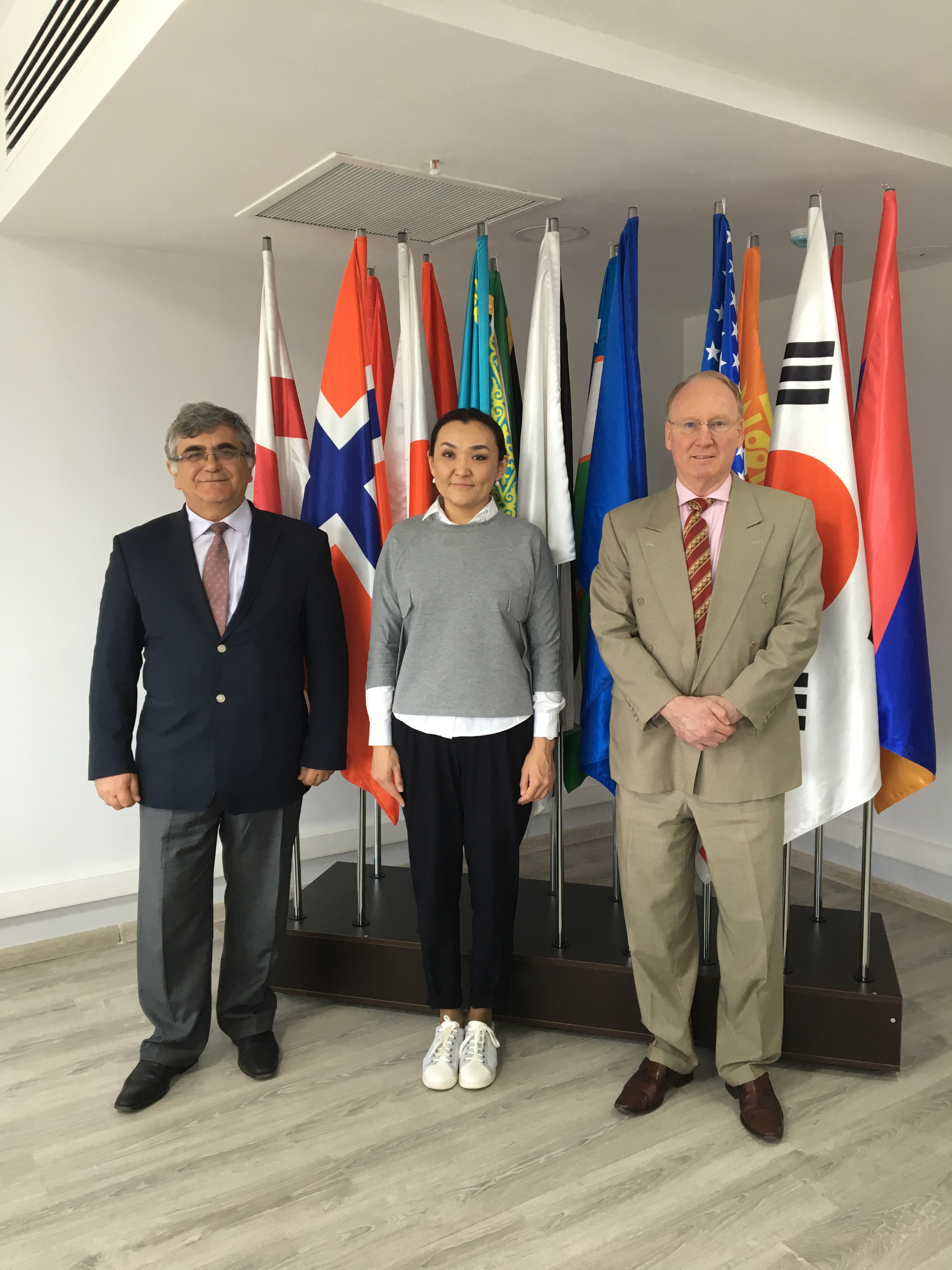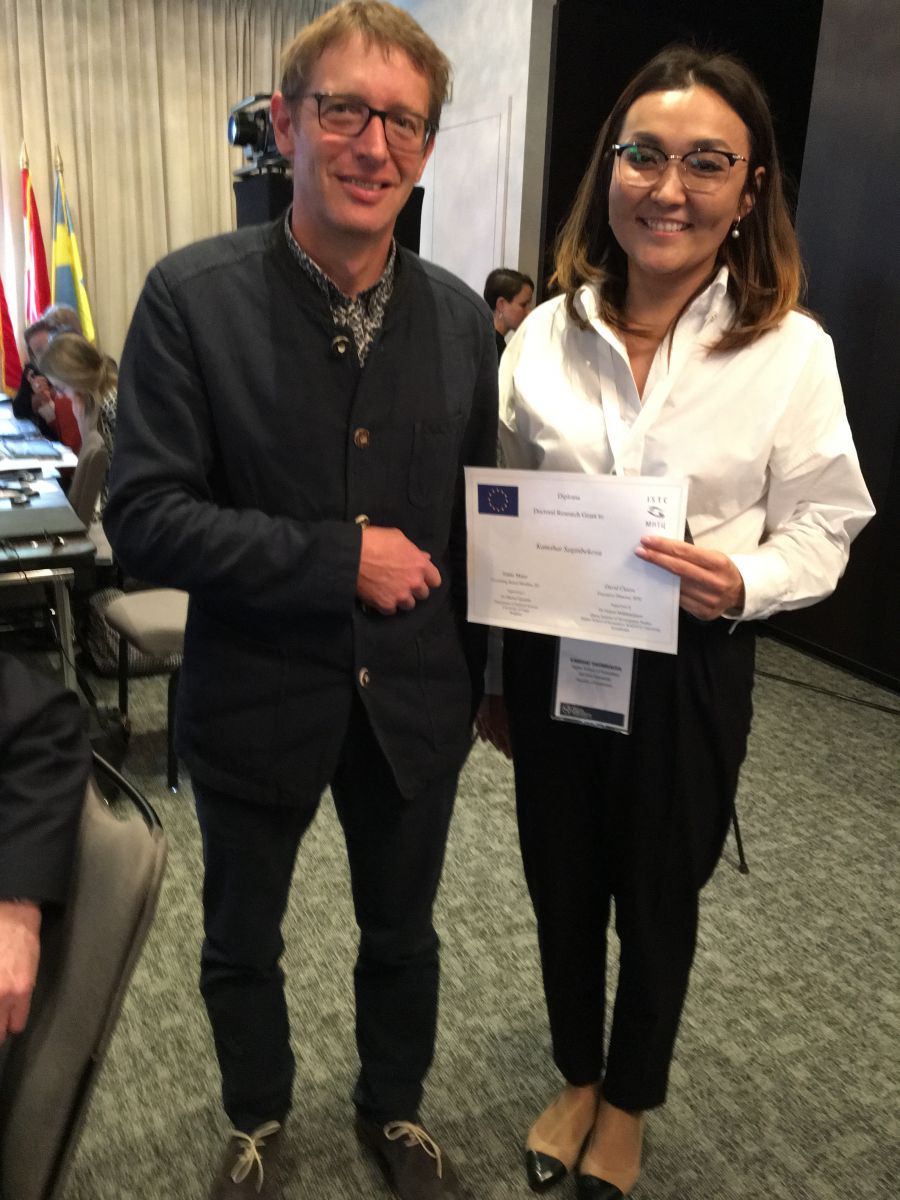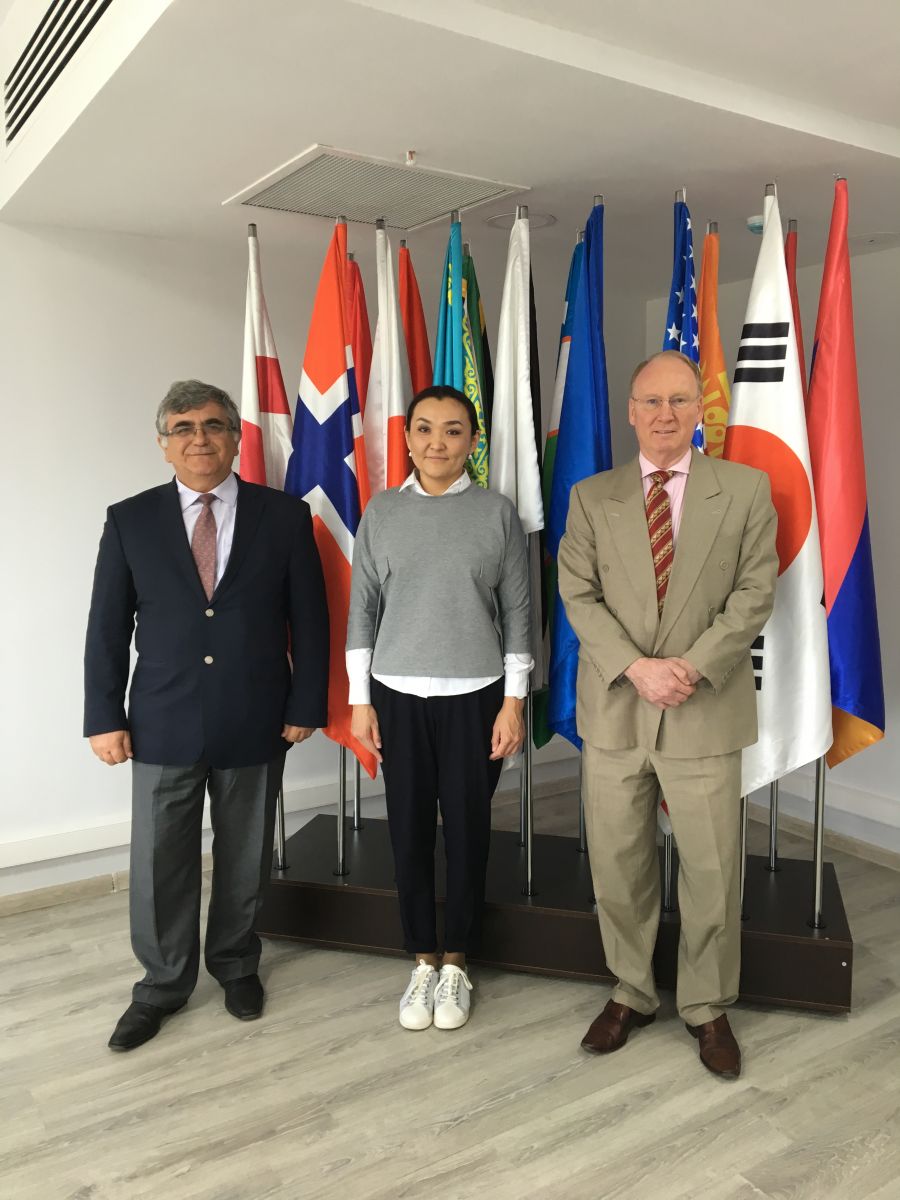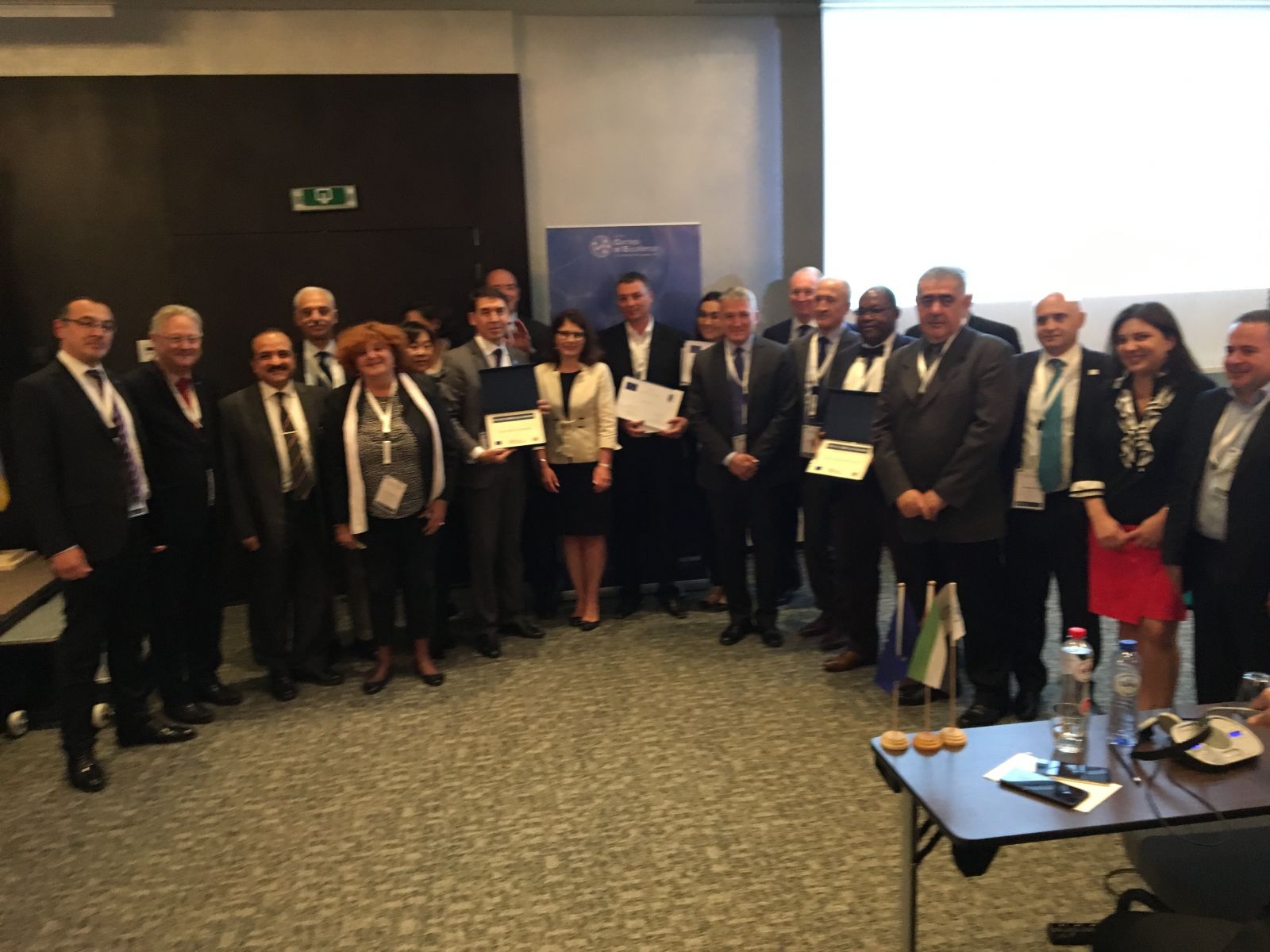A Young Kazakh Scholar Wins a PhD Grant under the ISTC Targeted Initiative on Export Control

In an interview, the holder of the doctoral grant Kamshat Saginbekova tells about reasons and challenges why this grant has become so essential to Kazakhstan and to her personally.
1st question:
Please tell us briefly about yourself and how you feel in the role of a pioneer in this direction since the grant was first approved only this year?
My name is Kamshat Saginbekova, I am a senior research fellow at Qazaq Institute of Development Studies (QIDS) of Higher School of Economics (HSE), M. Narikbayev KAZGUU University. I obtained all my postgraduate degrees in my home country, I have a PhD in Economics. I have had experience in the corporate sector as well as in academia: research activity and participation in projects on strengthening the forensic activity, regional development of Kazakhstan, practical experience in conducting scientific economic examination of bills, in strategic planning, in the negotiations of trade and export control regulations of processed goods from the customs territory of EAEU to third countries, system of process management and teaching.
I am happy to be a holder of this grant in the framework of International Science and Technology Center supported by the European Union because it opens perspectives in the research field. It has been my dream for years and I am pleased that my dream has come true. The grant was open for citizens from Kazakhstan, Kyrgyzstan, Turkmenistan, Armenia, Afghanistan, Pakistan and Mongolia in social science. The grant proposed the correlation between two universities – EU university and Kazakhstan university. And grant recipient has two supervisors. This research is based on the cooperation between European Studies Unit of Liège University (Belgium) and QIDS of HSE, KAZGUU University (Kazakhstan).
When I was preparing my proposal I realized that this research field has lack of studies related to the countries of Central Asia and this region has not been considered as a subject of the research within the export control. Also, there is a little-documented information about the economic effects of export control in Central Asian countries. In this case, I feel as a pioneer because the grant is new, very few Kazakhstani women have been involved in this field of science and the research field is multidisciplinary and covers politico-economic aspects of trade regulation of Central Asian countries.
I have had an enthusiasm this research field and to get a second PhD in Political Science for several reasons. First of all, I have a passion for research work and teaching and I have an enormous motive to do research work at the international level and to stay in my favorite academic field and also to improve my career prospects. Secondly, I have a keen interest in the subject, I propose to adopt a multidisciplinary approach to expand the existing literature in Economics and Political Sciences on the interrelation between export control and its economic effects in Central Asian countries. I realize that allegiance and endurance are vital to performing well in this field and I strongly believe that my academic background and experience, my personal characteristics will let me get a doctoral degree successfully.
2nd question:
How important is the considered research topic for Central Asian countries?
As it is known the export control is one of the decisive measures of international trade regulation and applied by countries as main instruments of external policy to ensure national safety and economic efficiency. In addition, export control is a principal part of non-proliferation regime, extinction of illicit trafficking of dual-use items and implements by multilateral agreements in the export control. Timeliness of the topic of proliferation is obvious to Central Asian countries and its rationale is increasing. In this case for Central Asian countries as participants of the international conventions and treaties it is crucial to strengthen the national legislation and the strategic trade management according to the best world practices, which include key components: control lists, types of export control regimes, licensing requirements and procedures, customs efforts, compliance mechanism, etc. It is achievable in the framework of the long-term partnership and cooperation between Central Asian and EU countries on the export control of dual-use goods and technologies. It is a bridge of knowledge, exchange of skills, capacity building, new trends and challenges, a collaboration between academics and practitioners.
3rd question
What is the main purpose of a research proposal?
The main idea of the research is to explore politico-economic aspects of trade regulation of Central Asian countries. In this context, the following topics in the research will be studied:
firstly, export control in case of Central Asian countries – overview and evaluation of the economic effects of non-compliance of export control rules, the losses and profits owing to sanctions by types in effect and forms of non-compliance;
secondly, trade regulation of goods in a framework of the integration union like EAEU: the economic effects of the political tools; the economic impact of the main instruments of trade regulation on member states’ economies;
thirdly, trade regulation of energy goods of Central Asian countries: the economic effects and costs of trade regulation of energy goods in Central Asian countries.
4th question
What are the benefits of the grant?
There are several essential benefits from the grant into the context of the EU-Kazakhstan educational and scientific cooperation which can be further expressed in: (1) reinforce of partnership between countries and continents in the export control, high correlation between European experience and practice of Central Asian countries; (2) development the collaboration between academics and practitioners; (3) capacity building and expansion of learning activity on non-proliferation and on export control by training high-qualified specialists and researchers. For example, the joint master program between European Studies Unit of Liège University (Belgium) and HSE of KAZGUU University; (4) further development of knowledge and research field in Economics and Political Sciences on the economic consequences of the export control in Central Asian countries.




